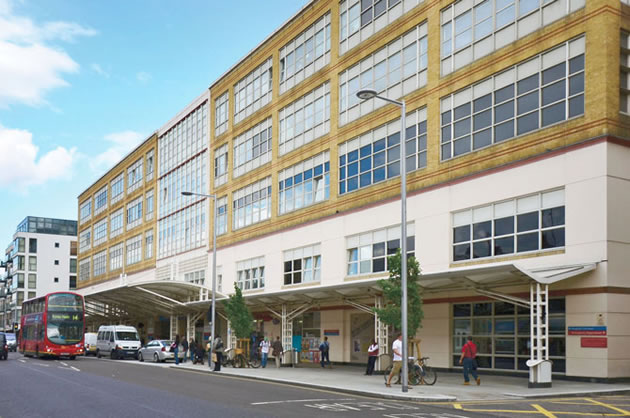'Extremely Rare' Complication Killed Three Week-old Baby
Nahyan Jaffar died at Chelsea and Westminster after feeding tube entered his heart

Chelsea and Westminster Hospital on Fulham Road
A three week-old baby died after a feeding tube entered his heart at Chelsea and Westminster Hospital after he had an operation to fix a hernia in his diaphragm
Nahyan Jaffar was born with a hernia, or tear, in his diaphragm on 8 May, 2019 at Queen Charlotte’s Hospital. He was transferred to Chelsea and Westminster for surgery and his hernia was treated successfully.
In the weeks that followed, doctors battled to save his life after belatedly discovering the effects of an “extremely rare” incident that led to his death on 1 June.
Inner West London Coroners’ Court heard on 21 January that Nahyan, whose family is from Chiswick, continued to need high levels of support to assist his blood pressure and breathing after his hernia operation.
Mark Thomas, a neonatal intensive care consultant, said this was initially put down to a collection of fluid on Nahyan’s lungs, which he was able to carefully remove by inserting a chest drain on 18 May.
Nahyan was being fed using an umbilical catheter. But on 23 May, Dr Thomas said he should instead be fed using an intravenous “longline” – a 30cm tube inserted into the baby’s elbow and directed into the digestive system.
On May 30, Nahyan’s heart rate continued to decline despite the help of a ventilator to breathe. That day, an emergency X-ray discovered the longline had become inserted into the lining of Nahyan’s heart.
The court heard from Dr Thomas that X-rays, which could have discovered that the needle had entered Nahyan’s heart, were not carried out because “there was no indication that anything was wrong”.
He also suggested it would not be safe to carry out regular, precautionary X-rays on infants because it could expose them to harmful radiation. The time it took to revive Nahyan’s breathing caused a severe injury to his brain due to the lack of oxygen.
Dr Thomas told the court: “Looking at the cerebral activity, it seemed to me he had a severe brain injury and he would not survive. And if he did survive, he would have severe disabilities. My colleagues all agreed with that.
“We agreed it would be in his interest to withdraw treatment. We decided this with his family."
The court also heard from consultant neonatologist Gary Hartnoll who was tasked by health chiefs at Chelsea and Westminster Hospital with investigating the incident.
Describing how the longline had entered the heart, Dr Hartnoll said: “This is not a usual situation... there’s not a lot of publications about it.
"Fewer than one in 2,000 lines this would happen to. It’s a very rare complication.”
He added: “In 34 years I had never seen one move that much.” And he agreed with Dr Thomas, that carrying out regular X-rays to check the position of a longline could expose infant patients to “harmful” radiation.
Dr Hartnoll made recommendations about how to check for problems with a longline: that dressings around the longline incision into the body should be checked to make sure they are in place, and to check whether medical staff are confident to use ultrasound scanners.
Bringing the hearing to a close, assistant coroner Jean Harkin gave a narrative verdict, that Nahyan died from “a rare complication of necessary medical treatment”.
Nahyan’s mother attended the inquest. She did not wish to comment following the hearing.
A spokesperson for Chelsea and Westminster NHS Foundation Trust said: "We offer our sincere condolences to the family on their sad loss. The coroner made no finding of causative failings by the Trust.
Owen Sheppard - Local Democracy Reporter
February 14, 2020